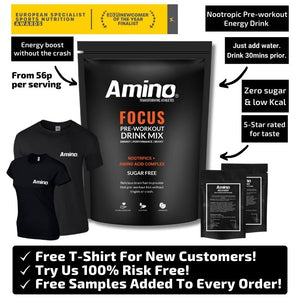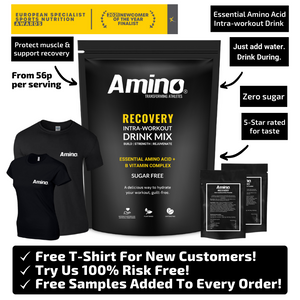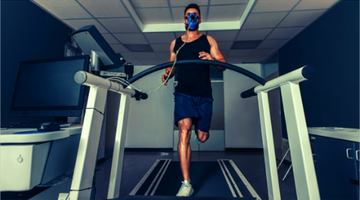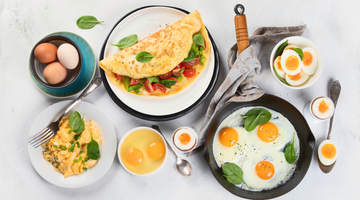Protein will help you to get stronger, but getting enough protein as a vegan can be a little complicated. Read on to discover some high protein vegan foods and how to build muscle on a plant-based diet.

Getting stronger and building muscle relies on two key principles: progressive weight overload and careful dietary planning.
The progressive weight overload can be achieved in the gym by gradually increasing the amount of weight you lift, the number of reps you complete or improving the form you have.
But the rest of your strength goals are reliant on getting the right fuel and nutrients to help your muscles repair and grow after a workout. This takes consideration whether you eat meat or not, but it can be a little trickier if you are a vegan.
What do vegans need to eat to grow muscle?
As a vegan looking to grow muscle, you’ll need to include carbohydrates in your diet. This is because carbohydrates are partially converted into glycogen and then used by your body to fuel your workouts. You’ll therefore need to include potatoes, and wholegrain rice, bread and pasta in your meals.
Fat is important too as it supports muscle movement and growth. This means that you need to include sources of monounsaturated and polyunsaturated fat, such as seeds, nuts and avocados in your muscle-growing diet.
But most importantly of all, your body needs protein.
Protein is a key component of any diet designed to help you get stronger. This is because our bodies break down protein into amino acids, which then play an important part in a process called muscle protein synthesis. This process is what repairs your muscles and helps them to grow stronger.
The amino acids we get from protein are known as Essential Amino Acids, and there are 9 in total, all of which have a role in supporting our muscles. However, there are 3 in particular that have been strongly linked to muscle protein synthesis. These are labelled Branched Chain Amino Acids (BCAAs) and are called leucine, isoleucine and valine.
But how do vegans get protein in their diet, and can vegan protein build muscle?
High protein vegan foods
First of all, vegan protein can absolutely build muscle. The most important thing is to include a good variety of plant-based protein to ensure that all of the body’s needs are met.
Many vegan proteins are ‘incomplete’ as they do not contain all of the 9 essential amino acids that are vital for building and repairing muscle. They are therefore often considered of lower quality, unlike animal proteins. However, some high protein vegan foods are indeed ‘complete’.
These include:
- Quinoa
- Tofu
- Edamame beans
- Chia seeds
Other high protein vegan foods, such as hemp seeds, peanuts and almonds, are technically incomplete but are high in leucine, which as we mentioned above is a key component to muscle protein synthesis.
Generally, in order to make sure you get all the amino acids your body needs, you should mix up your diet and include a variety of the complete and incomplete vegan proteins in your meals.
Other good incomplete vegan protein sources are:
- Beans, such as black beans
- Seeds, such as pumpkin
- Nuts, such as peanuts
- Lentils
- Soy or hemp milk
- Artichokes
- Green peas
- Broccoli
- Chickpeas
If you want to really ensure that you’re getting all the amino acids your body needs, you can give your vegan protein sources and muscles a boost with an amino acid supplement.
Vegan amino acid supplements
While a lot of protein and other fitness supplements are animal-based, it is perfectly possible to get vegan amino acids in the form of supplements.
For instance, both our FOCUS and RECOVERY amino acid drinks are made without the use of any animal derivatives.
The FOCUS drink contains all the amino acids you need to prep your body for a workout, giving your vegan diet a bit of a boost.
The RECOVERY drink, on the other hand, provides your body with the amino acids it needs to repair muscles and help you come back stronger.
By taking these drinks and mixing them with high protein vegan meals, you can help to make sure that your diet is supporting all of the hours you’re putting in at the gym. So, if you want to get stronger as a vegan, why not give them a try?
ENJOYED THIS ARTICLE?
SOURCES
https://pubmed.ncbi.nlm.nih.gov/16365096/
https://dspace.stir.ac.uk/bitstream/1893/25481/1/Witard-etal-Conversation-2017.pdf
https://wellbeingnutrition.com/blogs/listing/post-workout-recovery-with-vegan-protein-done-right
https://patient.info/news-and-features/how-to-build-muscle-on-a-vegan-diet





